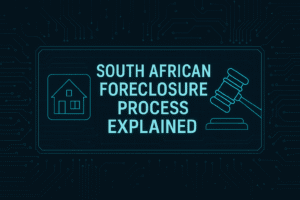Stop The Repossession Of My House: A Comprehensive Guide
Facing the threat of repossession can be one of the most stressful experiences a homeowner can endure. The prospect of losing your home can feel overwhelming, but it’s essential to remember that there are steps you can take to potentially stop the repossession process. This guide provides detailed strategies to help you navigate this challenging situation.
Understanding Repossession
Repossession occurs when a lender takes back a property after a homeowner defaults on their mortgage payments. The process can vary by country and lender, but typically involves several stages:
- Missed Payments: The lender sends notifications regarding missed payments.
- Default Notice: After a certain period, the lender issues a formal default notice.
- Foreclosure Proceedings: If payments remain unpaid, the lender initiates foreclosure proceedings.
- Auction: The property may be sold at auction to recover the owed amount.
Understanding this process is crucial, as it allows you to take timely action to prevent repossession.
Steps to Stop Repossession
Here are some strategies you can implement to stop the repossession of your home:
1. Communicate with Your Lender
The first and most important step is to communicate with your lender. Ignoring correspondence will not make the problem go away. Instead, reach out to discuss your situation. Lenders often prefer to work with borrowers rather than go through the costly process of repossession.
- Explain Your Circumstances: Be honest about your financial situation. If you’ve lost your job, incurred unexpected medical expenses, or faced other hardships, explain this to your lender.
- Request a Meeting: Many lenders have dedicated departments to handle financial difficulties. Request a face-to-face meeting or a phone call to discuss options.
2. Explore Repayment Plans
Once you’ve communicated with your lender, inquire about the possibility of a repayment plan. This could involve:
- Temporary Payment Reduction: Some lenders may allow you to make lower payments for a short period.
- Loan Modification: Adjusting the terms of your mortgage to make it more affordable, such as extending the loan term or reducing the interest rate.
3. Seek Professional Help
If you’re struggling to navigate the situation, consider enlisting the help of professionals:
- Housing Counselors: Non-profit housing counseling agencies can provide guidance and may help you negotiate with your lender.
- Legal Advice: A lawyer specializing in foreclosure can inform you of your rights and options. They may even help you file for bankruptcy as a last resort.
4. Consider Government Programs
Depending on your location, various government programs may be available to assist homeowners in distress. Research programs such as:
- Home Affordable Modification Program (HAMP): A program aimed at helping borrowers modify their loans to avoid foreclosure.
- Emergency Relief Funds: Some states offer funds to assist with mortgage payments for those facing temporary financial hardships.
5. Sell Your Home
If it seems unlikely that you can keep your home, selling it may be a viable option. A short sale, where the lender agrees to accept less than the total amount owed, can be an alternative.
- Consult a Real Estate Agent: Find an agent experienced in short sales who can guide you through the process.
- Ensure Proper Communication with Your Lender: Inform your lender of your intention to sell, as they need to approve any short sale.
6. File for Bankruptcy
In some cases, filing for bankruptcy may provide relief from foreclosure. While this is a significant decision with long-term financial implications, it can temporarily halt the repossession process.
- Chapter 7 Bankruptcy: May eliminate unsecured debts, allowing you to focus on keeping your home.
- Chapter 13 Bankruptcy: Allows you to reorganize your debts and create a repayment plan, which may help you catch up on missed mortgage payments.
7. Prepare for Court Hearing
If your lender has initiated foreclosure proceedings, you may receive a court summons. It’s crucial to respond to this summons promptly:
- Attend the Hearing: Not attending could result in a judgment against you.
- Present Your Case: If you’ve made efforts to communicate with your lender, document these interactions to present in court.
8. Know Your Rights
Familiarize yourself with your rights as a homeowner. Laws vary by state or country, but many have regulations in place to protect homeowners from unfair practices during the foreclosure process.
- Fair Debt Collection Practices Act (FDCPA): This U.S. law protects consumers from abusive debt collection practices.
- State-Specific Laws: Research local laws regarding foreclosure and repossession to ensure your rights are upheld.
Conclusion
Facing the threat of repossession is undoubtedly challenging, but there are many steps you can take to potentially stop the Repossession process and protect your home with Real Estate Assist. By communicating openly with your lender, exploring repayment plans, seeking professional help, or considering government programs, you can find a solution that best fits your situation. Remember, taking swift action and knowing your rights are critical in navigating this difficult time. If you find yourself struggling, don’t face it alone—Real Estate Assist is here to help.
At Real Estate Assist, we specialize in providing homeowners with customized solutions to prevent foreclosure and repossession. Our team can help you unlock the equity in your property, manage your debts more effectively, and find the financial stability you need to keep your home. Visit our Keep Your Home page to learn more about how we can assist you in protecting your property, or explore our Mortgage Relief options to see how we can provide support tailored to your specific needs.
FAQ: How Real Estate Assist Can Help You Stop Repossession
1. What is the first step if I’m facing repossession?
The first step is to communicate with your lender. Let them know about your financial difficulties and explore options such as repayment plans or loan modifications. Real Estate Assist can help facilitate these discussions and provide guidance on the best course of action for your situation. Learn more about how we can help you keep your home.
2. Can Real Estate Assist help me if I have a poor credit score?
Absolutely! We specialize in providing solutions that do not rely on credit scores. Whether through structured property transactions or unlocking your home’s equity, we offer alternative ways to manage your debt and stop repossession. Visit our page on debt consolidation to see how we can assist.
3. How does Real Estate Assist differ from other services?
Unlike traditional services, Real Estate Assist provides personalized, flexible solutions tailored to your specific needs. We help you explore all available options to prevent foreclosure, from unlocking your home’s equity to providing direct financial relief. Check out our mortgage relief page for more information.
4. What if selling my home is my only option?
If selling your home becomes necessary, Real Estate Assist can guide you through the process, including negotiating with your lender and managing a short sale to minimize financial loss. Our goal is to help you make the best decision under difficult circumstances. For more insights, read our blog on alternative solutions for distressed homeowners.
By choosing Real Estate Assist, you’re opting for a partner who understands your situation and offers real solutions to keep you in control. Don’t wait until it’s too late—reach out to us today to explore your options and protect your home.



